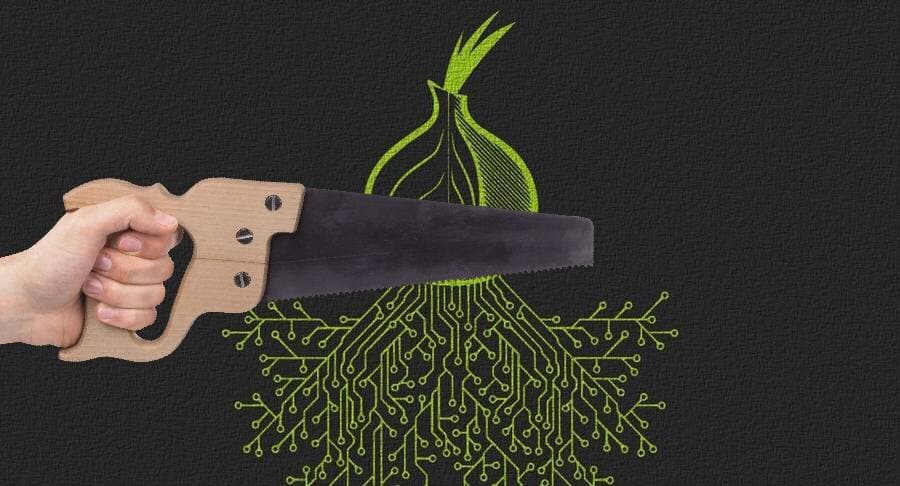Tor Project Notified of Inclusion in Russia’s List of Banned Websites
Recently, the Tor ProjectThe Tor Project is a nonprofit organization dedicated to protecting online privacy and ensuring uncensored access to the internet. Emerging from U.S. Naval Research Lab experiments with onion routing in the 1990s, Tor evolved into a decentralized, volunteer-powered network that hides user identities by routing traffic through multiple encrypted relays. Since the launch of the Tor Browser in 2008, it has become a crucial tool for activists, journalists, and everyday users worldwide—supporting free expression during events like the Arab Spring and proving resilient in the face of mass surveillance disclosures. Today, Tor is sustained by a global community committed to human rights, transparency, and digital freedom. More received a letter from Roskomnadzor, Russia’s federal communications regulator, regarding the upcoming blocking of the website https://www.torproject.org. One of the developers posted this notification on a forum, but it remains unclear exactly what the Tor ProjectThe Tor Project is a nonprofit organization dedicated to protecting online privacy and ensuring uncensored access to the internet. Emerging from U.S. Naval Research Lab experiments with onion routing in the 1990s, Tor evolved into a decentralized, volunteer-powered network that hides user identities by routing traffic through multiple encrypted relays. Since the launch of the Tor Browser in 2008, it has become a crucial tool for activists, journalists, and everyday users worldwide—supporting free expression during events like the Arab Spring and proving resilient in the face of mass surveillance disclosures. Today, Tor is sustained by a global community committed to human rights, transparency, and digital freedom. More is accused of violating or what issues need to be addressed. The letter states:
“If the hosting provider and/or website owner does not take measures to remove prohibited information and/or restrict access to the website on the Internet, a decision will be made to include the network address, which allows the site to be identified on the Internet and contains information whose distribution is prohibited in the Russian Federation, in the unified registry. Access to it will be restricted.”
No references to court decisions are provided in the text, leaving project participants puzzled about the specific claims of the Russian authorities.
Background and Legal Context
The Roskomnadzor portal’s service for checking the registry of banned sites contains a notification that can be considered a “relic,” as it dates back to 2017 and does not actually provide for access restrictions to the site.
Looking at the decision of the Saratov court, it is a nearly standard document for that period, in which the prosecutor’s office complains about violations of Russian law regarding providing citizens with the ability to “download an anonymizer browser program for subsequently visiting sites that contain materials included in the Federal List of Extremist Materials.”
A similar situation occurred with the “Toolkit” page on the Roskomsvoboda website, when prosecutors from the Krasnodar region had it blocked by court order in 2015. However, lawyers filed a complaint with the European Court of Human Rights, which found the blocking illegal, and the Anapa City Court subsequently closed the administrative case.
However, it is believed that the current situation with Tor is not related to the Saratov court decision. Many signs suggest that the attempt to block Tor is now being carried out using so-called technical means of countering threats (TSPU), which are installed by telecom operators but used by Roskomnadzor as part of the implementation of Law 90-FZ (“On the Sovereign Runet”). Most experts share this opinion. Still, the grounds for the current “stress test” of Tor remain unknown.
Expert Opinions on the Block
“Is it possible to block [Tor] for a large number of people?” ponders Vadim Losev, a technical specialist at Roskomsvoboda, in an interview with TJournal. “Yes, technically it’s possible. Is it possible to ensure that no one in Russia ever accesses Tor? No, that’s impossible.”
“Although the Tor block came as a surprise, the principle of sudden restrictions without press releases has been observed since the Telegram block in 2020,” IT specialist ValdikSS recalled. “At that time, Roskomnadzor began to take extralegal actions, arbitrarily and groundlessly adding various resources to the block list under ‘rubber-stamped’ court decision numbers, and also tested new blocking methods and technologies.”
Political Reactions and Public Concerns
Recently, Anton Gorelkin, Deputy Chairman of the State Duma’s Information Policy Committee and a member of the United Russia party, approved the possible blocking of Tor, calling it “absolute evil” and claiming that most illegal activities are carried out with its help, and that “Russian youth are being drawn into drug use.”
This position is surprising, since Tor, like any similar service, is merely a tool that people can use for both good and bad purposes. If the service itself is blocked, ordinary users will be the first to suffer, while offenders will be among the first to find new ways to carry out their activities. Vadim Losev comments:
“Perhaps it will be harder for people who want to buy drugs, but they are quite motivated and will figure it out. The owners of these sites will try to ensure their users can reach them.”
ValdikSS agrees: “Drug users figured out Tor first, then Bitcoin. They’ll be able to set up a bridge too, don’t worry. If things get really tough, they’ll go back to the old ways, using Telegram bots.”
Once again, not a single drug dealer has been caught through these blocks.



